
https://benjamins.com/catalog/ijcl
Gili Diamant reviews Fitzgerald (2023) and reflects on the use of oral testimonies for historical research
doi.org/10.1075/ijcl...
Philine Metzger reviews Vyatkina's (2024) application of Data-Driven Learning for English instruction in Germany
doi.org/10.1075/ijcl...
Gili Diamant reviews Fitzgerald (2023) and reflects on the use of oral testimonies for historical research
doi.org/10.1075/ijcl...
Philine Metzger reviews Vyatkina's (2024) application of Data-Driven Learning for English instruction in Germany
doi.org/10.1075/ijcl...
Their investigation sheds light on the potetnial of human-machine collaborative translation models
doi.org/10.1075/ijcl...
Their investigation sheds light on the potetnial of human-machine collaborative translation models
doi.org/10.1075/ijcl...
doi.org/10.1075/ijcl...
doi.org/10.1075/ijcl...
but
la raison suivante
Looi, Riget, Boulton & Hassan discuss synonym alternation between French prochain and suivant, using corpus evidence and statistical methods to re-examine variables derived through introspection
#OnlineFirst #FrenchLinguistics
doi.org/10.1075/ijcl...
but
la raison suivante
Looi, Riget, Boulton & Hassan discuss synonym alternation between French prochain and suivant, using corpus evidence and statistical methods to re-examine variables derived through introspection
#OnlineFirst #FrenchLinguistics
doi.org/10.1075/ijcl...
Work carried out in association with fuelpovertyresearch.net
doi.org/10.1075/ijcl...
Work carried out in association with fuelpovertyresearch.net
doi.org/10.1075/ijcl...
"il sera fou de joie…"
OUT NOW: Iva Novakova, Olivier Kraif, & Marion Gymnich's contrastive corpus analysis sheds light on the phraseological motifs observed in the French and English romance novel genre.
#LiteraryGenre #CorpusStylistics
doi.org/10.1075/ijcl...
"il sera fou de joie…"
OUT NOW: Iva Novakova, Olivier Kraif, & Marion Gymnich's contrastive corpus analysis sheds light on the phraseological motifs observed in the French and English romance novel genre.
#LiteraryGenre #CorpusStylistics
doi.org/10.1075/ijcl...
How do combining forms operate and what meaning is transferred?
Jinhong Huang and Yongwei Gao examine the evidence for 10 combining forms in American English to map out their schematic extensions and stability
#WordFormation
doi.org/10.1075/ijcl...
How do combining forms operate and what meaning is transferred?
Jinhong Huang and Yongwei Gao examine the evidence for 10 combining forms in American English to map out their schematic extensions and stability
#WordFormation
doi.org/10.1075/ijcl...
In this example, Early Modern English -ing forms are automatically classified by means of the historical English model MacBERTh.
#BERT
doi.org/10.1075/ijcl...
In this example, Early Modern English -ing forms are automatically classified by means of the historical English model MacBERTh.
#BERT
doi.org/10.1075/ijcl...
from guest editors Martin Schweinberger and Michael Haugh.
A reminder of the contributions to this issue:
1. doi.org/10.1075/ijcl...
2. doi.org/10.1075/ijcl...
...
from guest editors Martin Schweinberger and Michael Haugh.
A reminder of the contributions to this issue:
1. doi.org/10.1075/ijcl...
2. doi.org/10.1075/ijcl...
...
Their model is shown to be transferable and performs competitively alongside other machine learning methods.
doi.org/10.1075/ijcl...
Their model is shown to be transferable and performs competitively alongside other machine learning methods.
doi.org/10.1075/ijcl...
@journolinguist.bsky.social explores potential nostalgic markers in news about Covid as a methodological reflection on hypothesis-testing in #corpuslinguistics
What do we learn when we don't get expected results?
doi.org/10.1075/ijcl...
@journolinguist.bsky.social explores potential nostalgic markers in news about Covid as a methodological reflection on hypothesis-testing in #corpuslinguistics
What do we learn when we don't get expected results?
doi.org/10.1075/ijcl...
doi.org/10.1075/ijcl...
doi.org/10.1075/ijcl...
Perceptual salience and processing load are shown to be factors determining use of English dative alternation.
doi.org/10.1075/ijcl...
Perceptual salience and processing load are shown to be factors determining use of English dative alternation.
doi.org/10.1075/ijcl...
How do writers adapt to the different language contexts?
Find out here: doi.org/10.1075/ijcl...
How do writers adapt to the different language contexts?
Find out here: doi.org/10.1075/ijcl...
Starting with:
Ding Huang’s review of Meyer (2023), ‘English corpus linguistics: An introduction’ (Cambridge University Press) doi.org/10.1075/ijcl...
Starting with:
Ding Huang’s review of Meyer (2023), ‘English corpus linguistics: An introduction’ (Cambridge University Press) doi.org/10.1075/ijcl...
Larsson et al. investigate the distribution of adverbs produced by leaners from 7 language backgrounds, considering the role of L1 transfer alongside linguistic context variables.
#L2English #L1English
doi.org/10.1075/ijcl...
Larsson et al. investigate the distribution of adverbs produced by leaners from 7 language backgrounds, considering the role of L1 transfer alongside linguistic context variables.
#L2English #L1English
doi.org/10.1075/ijcl...
Writing in relation to FAIR and CARE principles, the authors provide actionable strategies for enhancing rigor.
#openscience
doi.org/10.1075/ijcl...
Writing in relation to FAIR and CARE principles, the authors provide actionable strategies for enhancing rigor.
#openscience
doi.org/10.1075/ijcl...
We are delighted to welcome @lukeccollins.bsky.social to the #IJCL team!
Luke is joining us as our new assistant editor.
He is taking over from Natalie Finlayson - thank you Natalie for all your work & best of luck with the new projects!
@johnbenjamins.bsky.social

We are delighted to welcome @lukeccollins.bsky.social to the #IJCL team!
Luke is joining us as our new assistant editor.
He is taking over from Natalie Finlayson - thank you Natalie for all your work & best of luck with the new projects!
@johnbenjamins.bsky.social
#openscience
benjamins.com/catalog/ijcl...
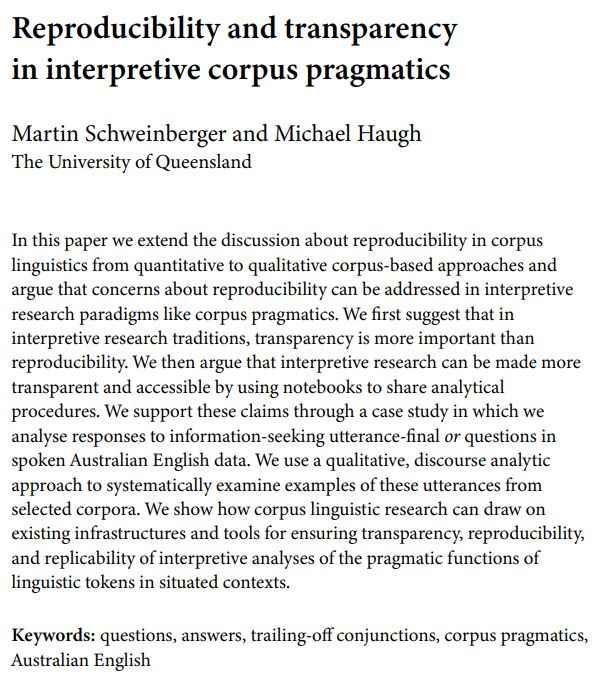
#openscience
benjamins.com/catalog/ijcl...
benjamins.com/catalog/ijcl...
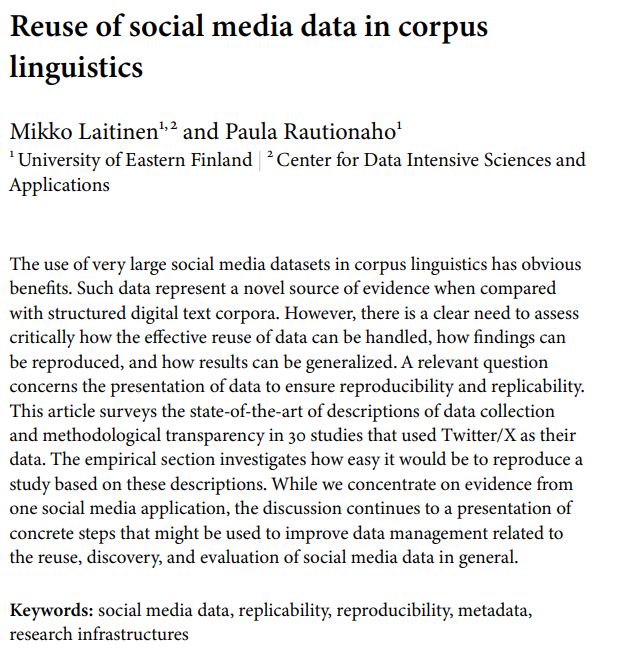
benjamins.com/catalog/ijcl...
benjamins.com/catalog/ijcl...
#corpuslinguistics #filmstudies #SLA
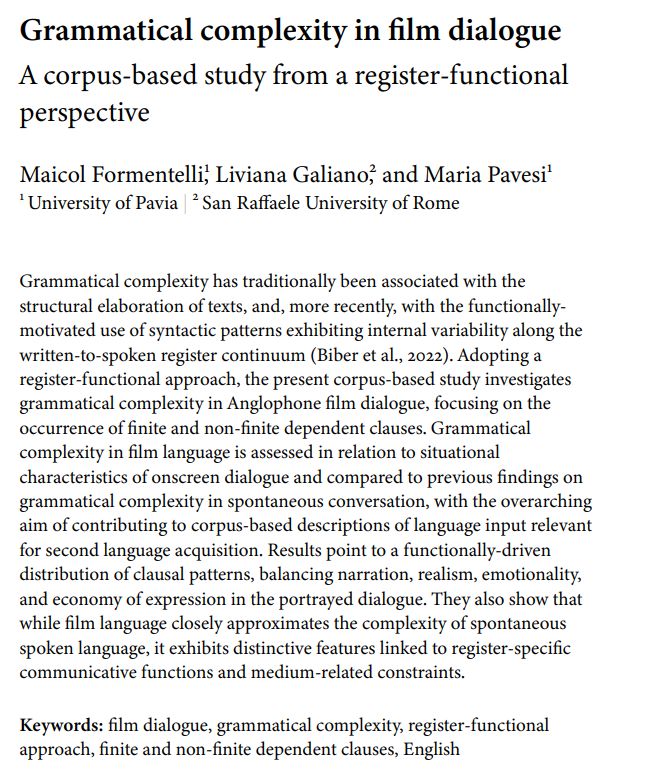
benjamins.com/catalog/ijcl...
#corpuslinguistics #filmstudies #SLA
In "Achieving stability in corpus-based analysis of word types", @jesse-egbert.bsky.social, Doug Biber, Bethany Gray & @tovelarsson.bsky.social review empirical case studies that challenge assumptions
benjamins.com/catalog/ijcl...
#corpuslinguistics #wordlists
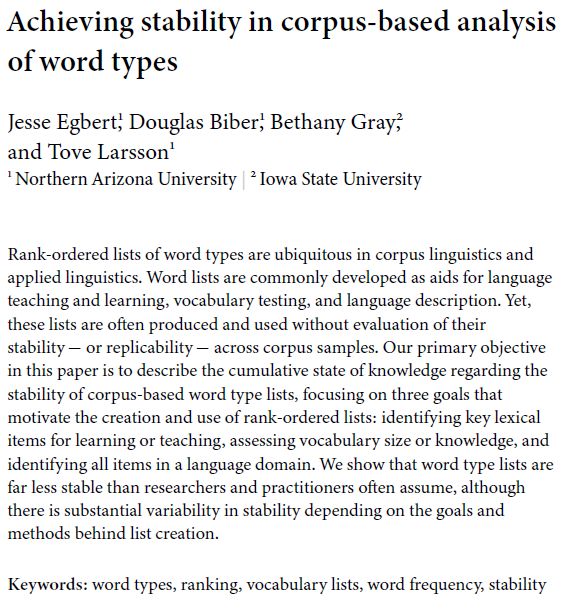
In "Achieving stability in corpus-based analysis of word types", @jesse-egbert.bsky.social, Doug Biber, Bethany Gray & @tovelarsson.bsky.social review empirical case studies that challenge assumptions
benjamins.com/catalog/ijcl...
#corpuslinguistics #wordlists
Batchelor & Lee-Laminack explore this in 'I'm so OCD lol: A corpus-based study of obsessive-compulsive disorder used as an adjective' benjamins.com/catalog/ijcl...
#corpuslinguistics #mentalhealthdiscourse @gsuresearch.bsky.social
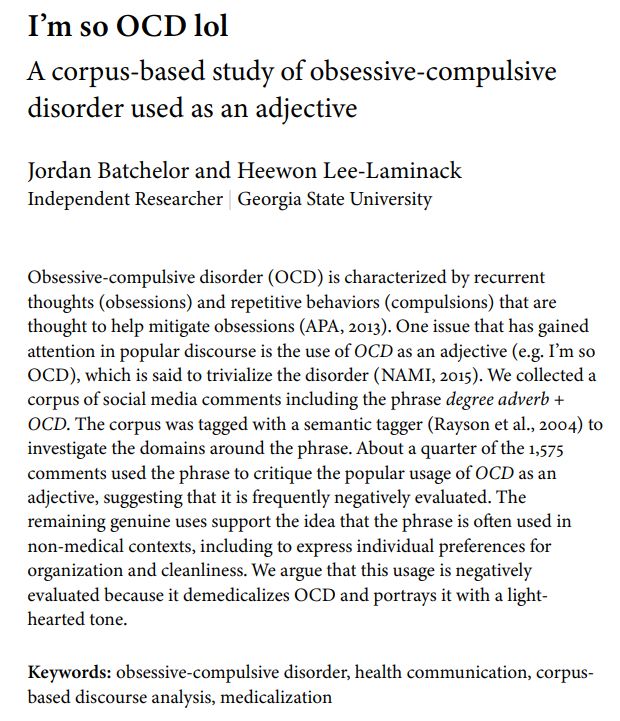
Batchelor & Lee-Laminack explore this in 'I'm so OCD lol: A corpus-based study of obsessive-compulsive disorder used as an adjective' benjamins.com/catalog/ijcl...
#corpuslinguistics #mentalhealthdiscourse @gsuresearch.bsky.social
benjamins.com/catalog/ijcl...
@helsinki.fi #onlinefirst
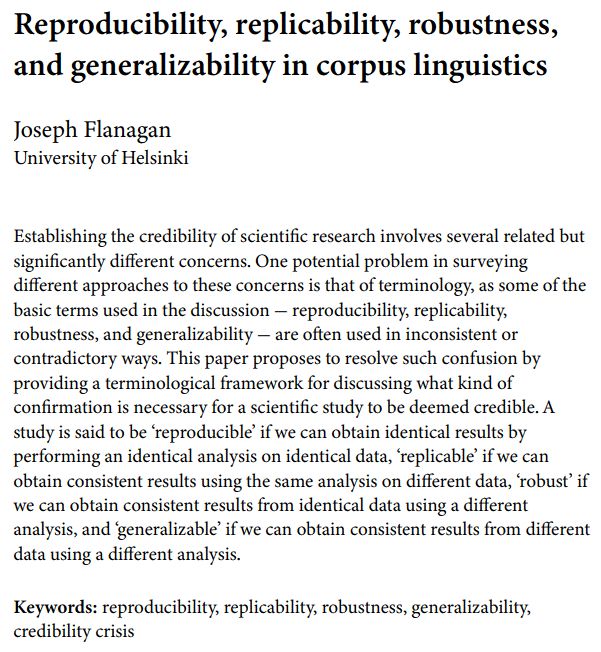
benjamins.com/catalog/ijcl...
@helsinki.fi #onlinefirst
benjamins.com/catalog/ijcl...
@kuleuvenuniversity.bsky.social #corpuslinguistics #French #syntax
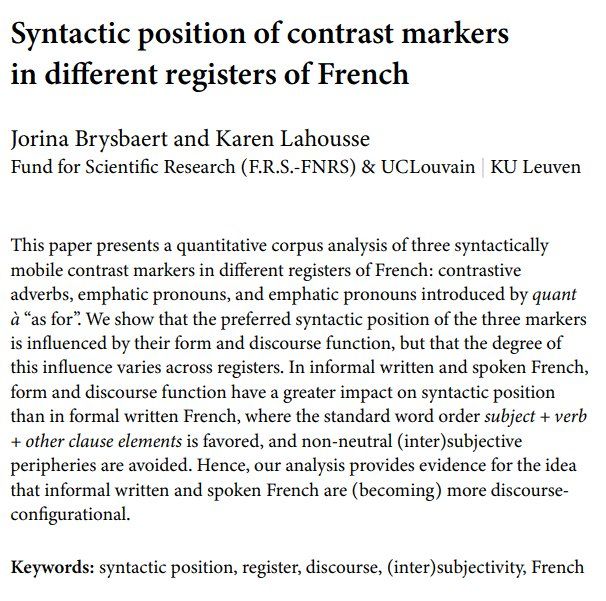
benjamins.com/catalog/ijcl...
@kuleuvenuniversity.bsky.social #corpuslinguistics #French #syntax

